You’ll need a Bow Hunting license before you leave on your first expedition. That is a concept that most people—even non-hunters—understand: in order to hunt game, you’ll need a license or permit.
Many individuals are unaware that they must usually fulfill an Bow Hunter Education requirement established by their state to acquire a hunting license. Many persons new to bow hunting are perplexed by this, and they’re not sure where they can learn more about the subject.
So, we’ll look at each element of bow hunter education in detail below and demystify the process for you. Hopefully, by the conclusion of this article, you’ll have a better idea of how to pick your courses, how actually to get into it, and how to receive credit for it.
Bow Hunter Education: An Overview
Table of Contents
Your state’s hunting license training classes are generally held on weekends—typically an all-day Saturday program—and they’re taught at local colleges and/or schools, archery ranges, and firing ranges/shops or municipal buildings. Some states do provide a hybrid “online-class-plus-in-person-event” alternative, but it’s unusual for states to offer an “online-only” course that doesn’t include any in-person follow-up.
Most have a specified number of hours in class, maybe some homework you must finish ahead of time, field instruction, and a final exam.
There is a lot of uncertainty among new hunters about class options and education requirements, particularly when it comes to broad hunting courses vs. bow hunting lessons, so let’s take a look at each kind of Course and then get into the specifics.
Almost Always Required for Hunting Courses
The rules and regulations governing hunting and archery vary in each state, as they differ greatly (and we’ll expand on that later).
Before receiving your first hunting permit or license, most states—if not all of them—need you to complete a basic Bow Hunter Education course.
Basic hunting classes generally cover the following topics:
- The history of firearms and the weapons utilized to hunt game.
- How to keep your weapon safe, secure, and in working order.
- How to Choose and Use Ammunition Safely.
- The fundamental concepts of marksmanship, as well as how to aim correctly.
- Know the rules and regulations that apply to your state’s hunting.
- The penalty you’ll have to pay if you break the laws and regulations of your state.
- How to recognize game and local animal species.
- How to field dress your game after it’s been harvested.
- We’ll talk about hunting ethics and how you can care for the land while you hunt.
- The basics of wildlife management, as well as its significance.
- Finally, check out these hunting safety and wilderness survival techniques.
- How to hunt lawfully and responsibly.
Other issues or concerns may arise during the preparation process, especially if there is a problem or issue that only affects your state (such as a drought/fire, alert / endangered species / etc.).
That is a simple Bow Hunter Education course about what sort of hunting weapon—a firearm, a bow, a crossbow, a muzzleloader, or something else—that person will be using. These classes are usually a prerequisite for everyone who wants to acquire a hunting license.
What Are Bow hunting Courses, and Why Should You Care About Them?
If you want to bow hunt in many/most states, you must enroll in and finish a bow hunting course. The subjects of most bow hunting classes will be general bow hunting topics, such as:
- The regulations and norms of your state and those that are specifically relevant to bow hunting.
- How to hunt safely with a bow, including how to store, insert, and utilize broad heads.
- Tree stands, as well as how to climb and descend one, the proper way to get your gear up to you; and
- This is a brief account of how shot placement and other hunting techniques may differ from conventional hunting practice.
The class may cover the same material as the basic Bow Hunter Education course, or it may concentrate on bow hunting techniques.
Insider Tips That Aren’t Always True
Now that you’ve got an overview let’s go over some helpful hints about Bow Hunter Education—and especially bow hunter education—that can help you through the process.
On top of your hunting course, you may be required to take a bow hunting class.
“I’m just going to be bow hunting—no firearms involved—so I’ll take a bow hunting course and get my license.” That isn’t necessarily the case!
In some jurisdictions, this is the case, but in others, you must first complete your basic Bow Hunter Education program, followed by a bow hunting course. That’s the case in Vermont, Idaho, Nebraska, and a variety of other states. If you want to bow hunt, you’ll need to discover what your state demands and meet them.
The precise procedures for acquiring a hunting license in each state are widely varied, and determining what rules apply to your state may be very difficult. So, the ideal approach is to.
Simply contact your state’s hunting agency
If you have a very particular query and can’t find it on your state’s website, give them a call. Serious. We’re a website, not in the business of converting people off the internet, but it’s really so much easier. If the state’s website doesn’t have all of the information you need to get started, give them a call.
Unlike nearly every other hotline around the globe, you will most likely be able to connect with a living, breathing human being on the other line. They will be capable of answering your inquiries and leading you on the proper path.
Check for classes early and frequently
You’ve made the decision to become a bow hunter. That’s wonderful! You expect to enroll online for a class in your area, maybe within the next month or two.
It’s not as simple as it sounds.
You’d be shocked at how quickly classes fill up, and if you don’t time things correctly, you may not be able to go bow hunting as soon as you want. Because of various issues, many people miss out on classes for a variety of reasons.
There are only a limited number of spots. Because classes typically only admit a small number of people—normally fewer than 50—spots fill up quickly. And not only that.
Classes Can Be sparse. Most classes are taught by volunteers who aren’t paid. As you might expect, organizing a large group of unpaid volunteers isn’t easy, so there may not be enough instructors to teach everyone who wants to enroll in one.
Your state is a large place. You may discover that a particular class has open seats, but you live in California, and the following session is 500 miles from your home. The classes in your area may be full, and the only available classes might be hundreds of miles away.
So, here’s what we suggest: go online as soon as possible and check out what your state has to offer. Spots in a class are quickly filled, so pounce on the first one that works for you—and if you can’t get one, keep searching online every day to see whether your state adds any new ones. When interest rates are ideal, they’ll generally add a few dates, but you’ll need to register before anybody else does.
Don’t take the First Online Course you come across
Like Online Hunter Ed and Hunter Ed, several websites provide online bow hunting lessons, but they may not meet your state’s educational criteria. As we said before, your state has specific criteria that you must fulfill before you may bow hunt, so make sure the online Course you’ve discovered is one that will meet their criteria.
If you have a query about whether your state accepts any particular course, consult with them or call to determine what you must do.
You may always take a refresher bow hunting course
If you don’t want to bow hunt, take a class. If you’re an archer and would like to learn more about bow hunting and how bows are used to capture games, there’s no better time than now. It’ll be fascinating. There was a terrific essay in Colorado Outdoors magazine about a woman who didn’t want to hunt but was interested in how hunters ate. Isn’t it amazing?
However, if you haven’t already, don’t forget that even if you’ve completed a bow hunting course once before, you may always retake it. You’ll never know everything ever there is to know about the technique, and it’s always lovely to meet other people with similar passions (and we’ll speak more about the importance of like-minded people in a minute).
If you’ve completed the basic Course and want to go deeper, bear in mind that.
More advanced classes may be available
Bow hunting techniques and methods were formerly passed down through family lines, but that isn’t always the case anymore, and many people are learning bow hunting on their own. If that’s the case, and you believe you’ve mastered the basics, advanced classes may be a really excellent alternative.
Here’s a sample of the more advanced classes available in California. There are clinics for wild pig hunting, deer hunting, wild turkey hunting, and courses on waterfowl hunting. The courses instruct you on the various types of guns and weapons that would be required to hunt these species, how to survey and track them, and how to butcher them after a successful expedition.
Although not all states provide advanced training, wouldn’t it be great if they did?
Crossbows Classes may or may not be required for you
We’ve seen hunters who have enrolled in a bow hunting course, finished it, and then discovered midway through the class that they would be unable to use a crossbow while hunting. They were not pleased.
If you are going to hunt with a crossbow, double-check the requirements for your hunting license, and don’t assume that your bow hunting license covers it.
If You’re a Parent and Your Son / Daughter Is Enrolled in the Course
There may be specific rules that you must adhere to. You may need to:
- Fill out a Student Consent form/additional papers to allow your kid to take the Course.
- Consider hunting with your child so that he is accompanied at all times during the hunt and that he is not left alone.
- Take the class with your kid and pass it yourself.
It’s also whatever your state says.
There may be apprentice hunting available.
Not all states offer them, but some do understand the difficulties that inexperienced hunters and bow hunters confront, and they provide a sort of mentoring program.
In California, there is one such apprentice program. You may be asked to fulfill specific requirements, and you may only be eligible to play a specific game or at specific times throughout the year, but the programs can be highly gratifying. That’s an intriguing topic!
How to gain the most from your Course
Now you know what bow hunter training is and some insider secrets on how to choose the best Course and get accepted. Let’s look at how you might make the most of your stay.
Prepare to Come to Class Ready
Every class will want something different, so double-check the syllabus before coming. Homework might be assigned before the first class and must be completed before you can get credit for the Course.
That’s harsh! But that’s the law (as we’ve previously stated) in some states.
You can also come prepared if you.
Do some preliminary research before beginning
Hunting is a big topic, and there’s a lot to understand—from bow knowledge (how to use your bow, equipment selection, accuracy skills) to game knowledge (how certain animals act, how to track them, and where to aim). Hunting strategy (finding animals in the first place and predicting their movements) is also important. You may inquire about several things, so get a good understanding of the business before your session.
Fortunately, there’s a fantastic website that provides a wealth of helpful information about bow hunting, and it’s called… the BossTargets! That is correct. Yes, that’s us. You are allowed to come up with some excellent questions for your instructor if you poke around the site before heading to class.
When you know the subject a bit, it always appears that you ask superior questions, so get ready before you go in.
Ask a lot of questions
If you’re hesitant or afraid of speaking in front of people, push yourself to do it. These courses are taught by instructors that truly know their stuff, and your class is a rare chance to communicate with someone who really understands bow hunting. We’re big fans of online learning, but the opportunity to learn from a professional doesn’t come around every day. Take benefit of the situation as soon as possible.
Like any other instructor, instructors are enthusiastic about their field and want to assist others in learning. There are no such things as a stupid question. Of Course, ask away.
Make Contact With People!
Hunting, while thrilling, maybe a lonely experience, and the chances to socialize with like-minded people are restricted. In your bow hunting class, you’ll have the opportunity to meet individuals with a similar passion, and it may be a wonderful chance to establish friendships with possible hunting partners.
You could also meet individuals from various backgrounds, ages, and occupations who have various experiences between them. During your hunting class, you might learn more about hunting and its practitioners, the people who choose to pick up a bow and go into nature.
Before we go any further, keep in mind that depending on where you live, it may be tough to meet individuals who are interested in bow hunting, so make the most of your class’s rare opportunity.
A Note on Your Hunting Instructor
Before we conclude, a reminder:
Let your instructor know that you appreciate their assistance
In most cases, your course instructor is a volunteer who has completed a certification program to learn how to instruct you about bow hunting. Even those who are paid a lot of money aren’t making the big bucks (here’s where we insert “bucks” for clarity).
They’re there because they enjoy hunting and the outdoors, and they want people to enjoy it as well. It’s all about a player’s passion and love of the game, which is fantastic.
So, go up and offer your instructor a big thank-you if you’re ready to do so. It will brighten their day.
Is it possible to become an instructor yourself?
Contact your state’s hunting department if you complete your bow hunting courses, gain some experience in the field, and then decide you’d want to teach people! Volunteering is usually appreciated, and you can frequently discover more about it on a state’s website – check out this page on volunteers from the Wisconsin site and this one on volunteers from the Ohio site. The hunting world always needs new instructors, so go for it if you’re passionate about it!
The Education Wrap-Up of Bow hunting
That concludes our bow hunting training! While we understand that classes are a legal requirement in most states, we propose viewing them as an opportunity rather than a duty. The best thing about bear hunting is that it allows you to meet people, get your “bear”ings (more wordplay!), and develop a lifelong hobby. Good luck on your hunt, and have a wonderful time!


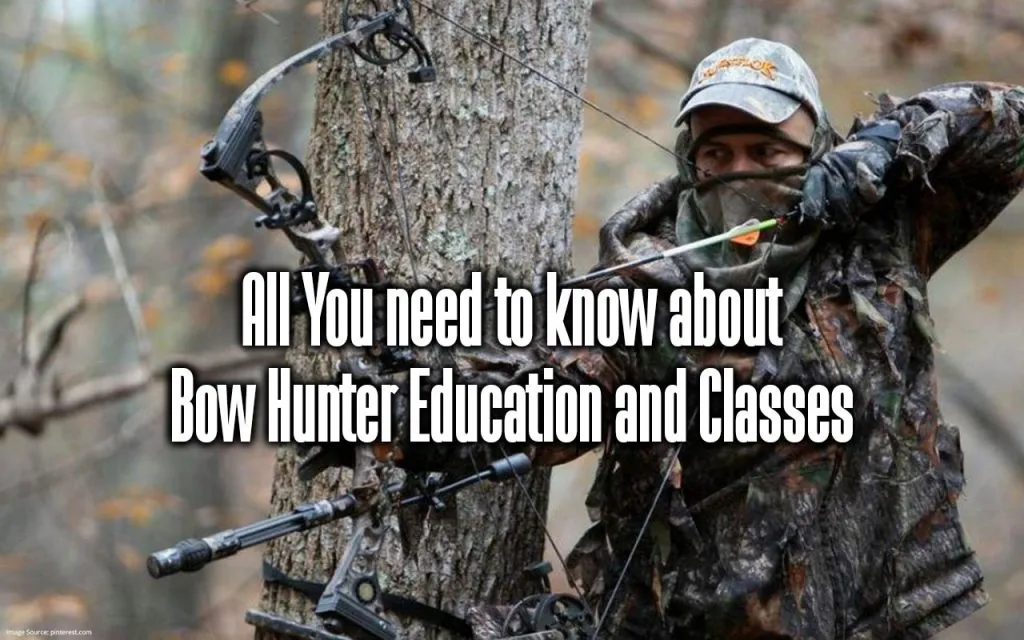
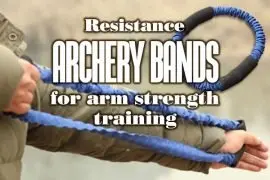
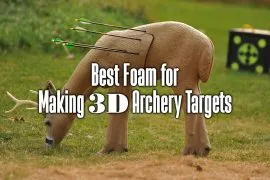
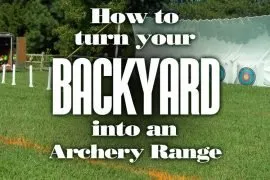
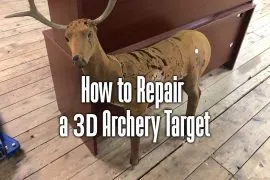
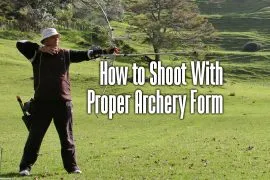
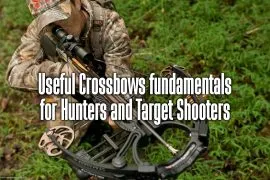
2 Comments
Pingback: Bow Hunting License Info and Tips - Boss Targets
Pingback: What is the Ideal Draw Weight for My Bow?